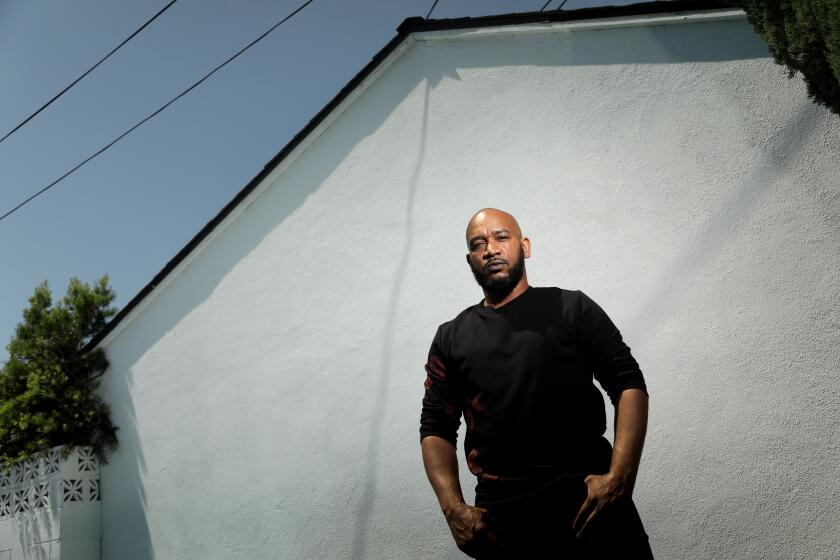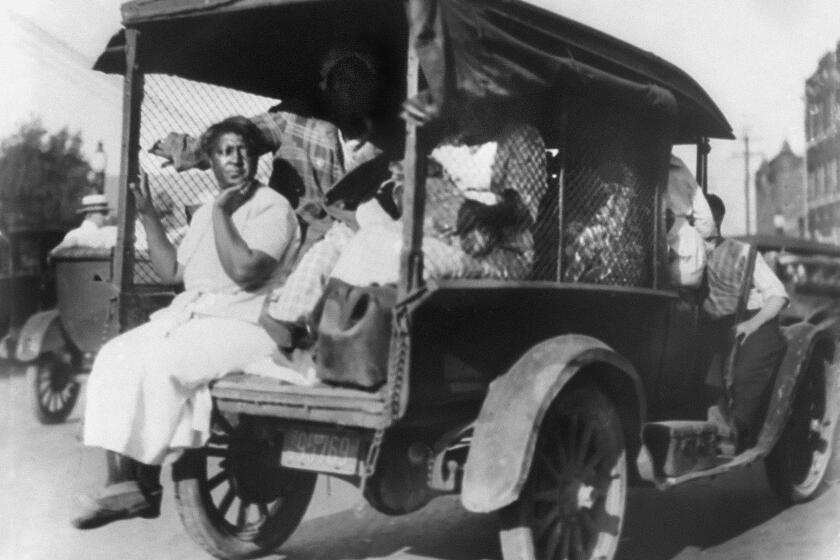Hollywood says its antiracism push is not a ‘fad.’ Is the industry keeping its promises?
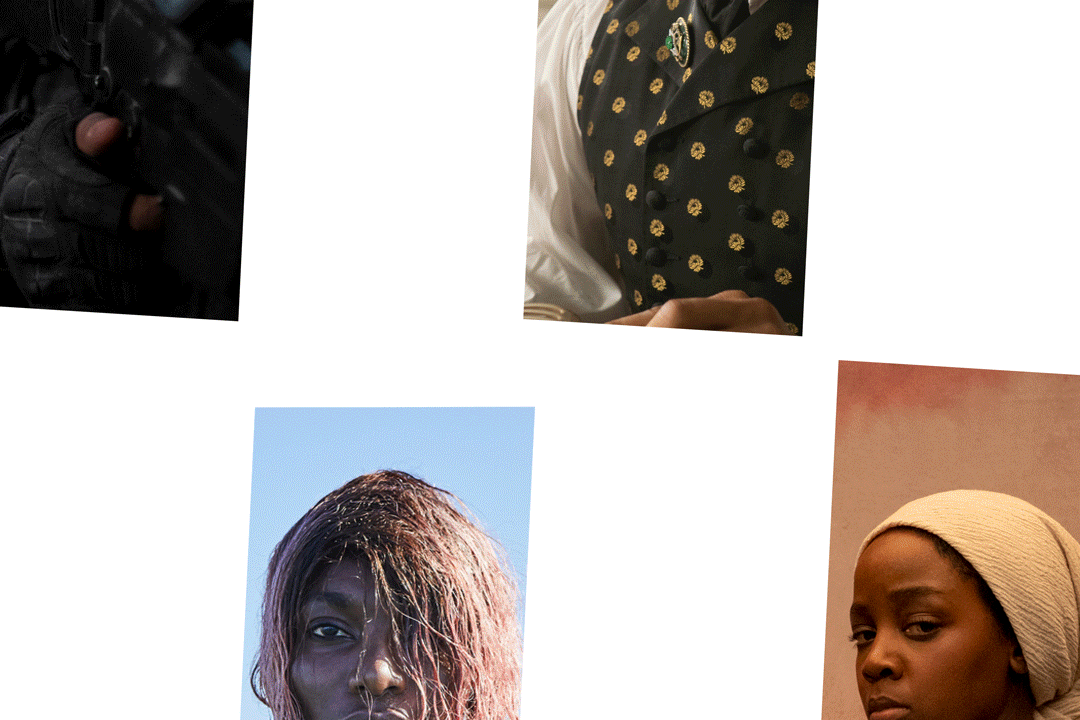
- Share via
When massive protests erupted nationwide last summer after the murder of George Floyd by Minneapolis police, the entertainment industry was initially slow to respond. Studios and major corporations responsible for creating content to entertain America kept their distance.
That inaction brought a stinging rebuke from CNN anchor Don Lemon. “What about Hollywood?” he asked on-air during the network’s coverage of the protests. “Strangely quiet ... Have some moral courage and stop worrying about your reputation and your brand.”
Soon after Lemon delivered his reprimand, major entertainment companies sprung into action, issuing statements of solidarity with and support for the Black Lives Matter movement.
Companies pledged millions to support organizations dedicated to social justice. A number of internal programs and pipelines to promote diversity and inclusion were established or expanded. More transparency in dealing with issues revolving around race was promised.
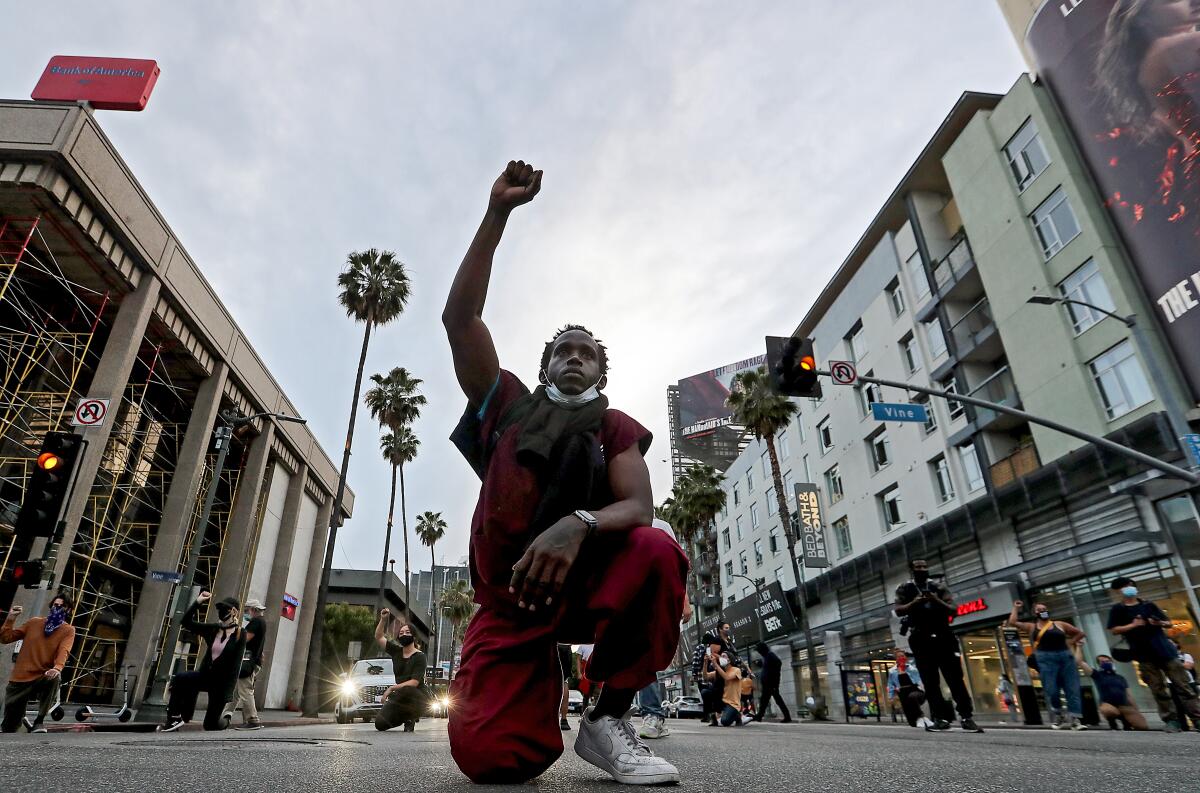
Anti-racist programming came to broadcast news shows and kids cable channels alike. Multiple companies implemented training and education initiatives and conversation series about race for employees and executives.
“We knew we had to seize the moment,” said Craig Robinson, chief diversity officer at NBC Universal. “This is not a passing fad. So many employees in corporate America are looking at what their companies are doing.”
Although the protests have quieted, studios, networks and producers say they remain committed to racial justice and inclusion. Many charitable donations continue, as do most of the pipelines and programs initiated in the wake of the protests.
Michelynn Woodard, head of social impact, diversity and inclusion at J.J. Abrams’ Bad Robot Productions, said: “What we try to do is continue to capture the moment, and determine how we continue to evolve our work to make sure we’re making the right investment for a world that’s rapidly changing around us.” She said Abrams and his wife and producing partner, Katie McGrath, have made a commitment “not to separate social impact and profit.”
Numerous projects revolving around Black issues and personalities have also blossomed since the protests, including documentaries about the 1921 Tulsa Race Massacre and critically acclaimed TV series such as Amazon’s “The Underground Railroad” and HBO’s “I May Destroy You.”
The Times interviewed nearly two dozen Black entertainment industry voices, spanning directors, producers, writers, designers, agents and executives. They discussed racism in Hollywood, what needs to change and their frustration with years of talk and little action by powerful companies.
But the jury is still out on whether Hollywood’s actions will result in meaningful change for an industry with persistent barriers to entry for people without existing connections — or the ability to toil for years in low-paying assistant jobs and internships.
On-screen representation has noticeably grown. People of color accounted for nearly 40% of the leads in top films for 2020, the highest share on record, according to UCLA’s Hollywood Diversity Report.
But inclusion gaps remain, especially behind the scenes. People of color accounted for 25% of the directors for 2020’s top films, UCLA data showed. Though that was an 11% increase from the prior year, researchers note that many big-screen releases were delayed until 2021, and the smaller films that get released through streaming tend to be more diverse. And studios continue to run into landmines with race-related controversies (see “The Bachelor”).
Darnell Hunt, dean of social sciences at UCLA, said real change won’t happen until the racial makeup of the executive ranks changes. Those jobs remain dominated by white people. In a review of 11 major and midsize film studios in early 2020, Hunt and other researchers found that 91% of studio heads, 93% of senior executives and 86% of unit heads are white. A Times survey of C-suites that year found similar results.
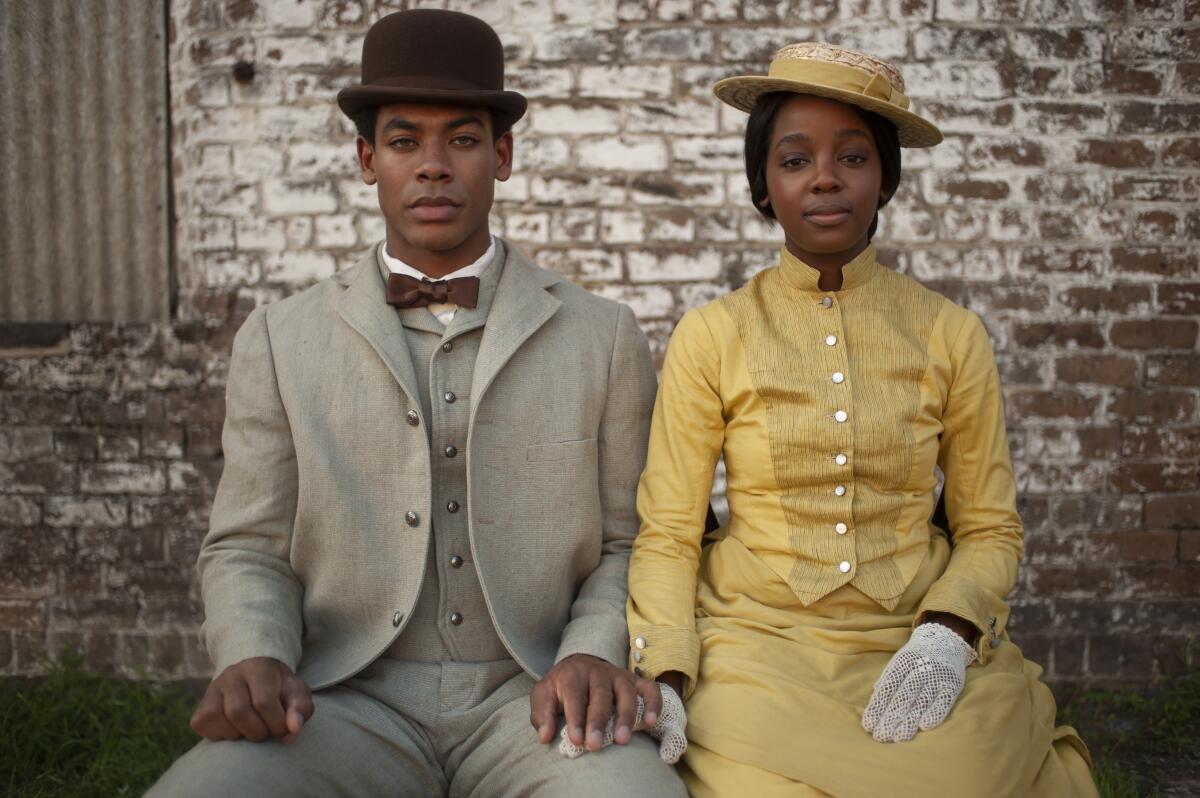
“The one area that’s been the most stubborn to change over the years is the executive suites where the real power lies, where the decisions are made that affect everything else,” Hunt said. “For the most part, the numbers look just like they did five years ago. Once we see change there, then I’ll be more optimistic.”
Christy Haubegger, chief inclusion officer at WarnerMedia, said the impact of the nation’s racial reckoning went beyond the numbers. Floyd’s murder raised awareness of racism and the importance of creating environments where people of color can thrive, she said.
“1.0 was getting people in the room,” Haubegger said. “But if you have worked really hard to get a diverse group of people in that room, and they don’t feel they can talk, or their contributions won’t be valued, you don’t get the benefit of having those people in the room.”
This summer, The Times reached out to entertainment companies for a progress report on their actions and pledges of last year. Many issued detailed responses saying that inclusion and attention to racial justice remain a top priority. Here are the highlights:
After pledging ‘real change’ amid last year’s protests, ABC and owner Walt Disney Co. stayed silent as a firestorm over race consumed its reality-TV flagship.
Financial contributions
Multiple companies pledged monetary support for nonprofits focused on racial justice and other social causes, setting up multiple funds to distribute money over a few years. Such funds in the past have been criticized for supporting the same groups. But people involved in the recent efforts say the funds contribute to a broader swath of local and grassroots organizations.
Amazon: The online giant announced last June it would donate $11 million to several organizations, including Black Lives Matter, the ACLU Foundation and the NAACP. It also said that 100% of employee contributions to those groups would be matched, up to $10,000 per employee. Direct interactions with those organizations, including recruitment and education, has continued.
Bad Robot: The production company owned by director J.J. Abrams and his wife, Katie McGrath, partnered with the Katie McGrath and J.J. Abrams Family Foundation to provide $10 million over five years to social justice organizations, including Black Lives Matter and the Community Coalition of South L.A. The number of groups expanded to 11 this year, including Ghetto Film School and Stop AAPI Hate.
Comcast Corp.: The company, which includes NBCUniversal and Sky in Europe, last year pledged $100 million — $75 million in cash and $25 million in ad time — to groups such as the National Urban League, the Equal Justice Initiative and the NAACP. In January, the NBCUniversal News Group launched NBCU Academy, a multiplatform journalism training and development program at 17 academic partners including Historically Black Colleges and Universities and Hispanic-Serving Institutions. The initiative is backed by a $6.5 million investment.
Sony Corp: The Tokyo electronics giant’s music division launched a $100 million fund to support anti-racist and social justice initiatives. So far, the company has donated $25 million to about 300 organizations. One of the grantees, U.K.’s Key 4 Life, worked with the company to develop a rehabilitation program for young ex-offenders to fast-track employment.
ViacomCBS: The corporate parent of MTV, CBS, BET, Comedy Central, Showtime and Paramount Pictures in 2020 pledged $5 million to several groups , including the NAACP Legal Defense Fund and Amnesty International. The company this year endowed $1 million to establish the ViacomCBS HBCU Diversity in Journalism Scholarship for students to attend the USC Annenberg School for Communication and Journalism.
Walt Disney Co.: Disney pledged $5 million to existing and new organizations. To date, according to the company’s 2020 social responsibility report, Disney has made commitments to groups such as the NAACP, Equal Justice Initiative, United Negro College Fund, Black Girls Code, ARRAY 101 and Hidden Genius Project. The company said in 2021 it also would begin tracking its social initiatives with a goal that more than 50% of its charitable giving would go to programs directly serving underrepresented communities.
Warner Music Group: The $100-million Warner Music Group/Blavatnik Family Foundation Social Justice Fund has committed $12.9 million to organizations. Those groups include the Florida Rights Restoration Coalition, which aims to remove barriers to voting for formerly convicted persons, and the Black Futures Lab, which used its investment to register Black voters through its #BlackToTheBallot voter engagement campaign.
Universal Music Group: The world’s largest music company’s Task Force for Meaningful Change fund contributed to the Black Lives Matter organization and more than 100 other groups, following up with secondary donations to organizations such as World Central Kitchen, select Boys & Girls Clubs of America and housing organizations such as the Housing Crisis Center in Dallas.
Hollywood has worked to increase diversity in its lower ranks. But the top writing jobs in film and TV still largely go to white men.
Pipeline programs for talent development
Companies set up and expanded programs to help writers, directors, crew workers and aspiring executives gain exposure and experience. While such initiatives are seen as important pathways for some, they have long been criticized as not leading directly to the level of hiring that would meaningfully move the needle.
Tim McNeal, who runs the Creative Talent Development & Inclusion department within Disney’s general entertainment division, acknowledges the challenge. This year, the unit’s long-running directors program committed to participants directing episodes of shows including “black-ish,” “Good Trouble” and “Snowfall.” McNeal’s unit also connects new writers and directors to Disney executives through “speed dating”- type events.
“For us, good intentions don’t mean much if people aren’t getting jobs,” McNeal said. “We want to support them not just in their first episode or second episode, but we want to make sure they get enough traction to become working directors not just at our company, but across all of episodic television.”
Amazon: The Howard Entertainment Program, a first-of-its-kind, fully accredited partnership between an HBCU and a major studio, was established to give students hands-on industry experience.
Fox: Fox Inclusion and Fox Learning & Development developed and launched a company-wide Inclusion Education Series, speaking to several issues including education, health and wellness, that also seeks to amplify diverse leaders within Fox. Fox Alternative Entertainment launched Fastrack in January to nurture producers with diverse backgrounds and create a pipeline of new talent behind the camera.
NBCUniversal: In addition to existing programs for live-action film screenwriters and directors, Universal Filmed Entertainment Group this year launched its Universal Animation Writers Program, which identifies and develops an inclusive pool of talent. The one-year paid program partners with NBCU-affiliated units including DreamWorks Animation and Illumination Entertainment. NBCUniversal has named DE&I executive leaders across its various business units, in such areas as content, development programs, employee engagement and supplier diversity.
Sony: The Culver City movie studio signed a pipeline partnership and first-look deal with Jeff Friday Media (the production company of Jeff Friday, founder of the American Black Film Festival). Through the deal, the studio gets first consideration for features submitted to the festival.
ViacomCBS: In September 2020, MTV Entertainment Group established its First Time Directors Program, which calls for 50 films across Paramount Network, MTV, Comedy Central and other networks from BIPOC (Black, Indigenous and People of Color) filmmakers and female directors. The division in December committed $250 million over three years to support content from women- and BIPOC-owned and operated production companies.
WarnerMedia: Producer Charles D. King’s media company Macro and The Black List, a marketplace for unproduced scripts, teamed with Warner Bros. Pictures to create a feature screenwriter incubator. The initiative allows writers of color to develop a film idea to pitch to a Warner Bros. executive.
Hollywood execs once dismissed the idea of mass interest in the 1921 Tulsa Race Massacre, but the success of HBO’s Emmy-winning series breathed life into a raft of documentaries.
Internal processes and goal-setting
Many firms expanded efforts to improve their inclusion numbers. Some companies are more transparent than others when it comes to disclosing their progress. WarnerMedia, for example, publicly issues a report on its progress for inclusion and diversity amongst its employees at various levels. In 2018, the most recent data available, executives were far less ethnically and racially diverse than non-managers, though new hires and promotions were more diverse than total employees.
Bad Robot: For several years, Bad Robot has instituted an internal requirement of interviewing a diverse slate of candidates for every open position that is commensurate with the United States population. The company says its employees are 48% people of color and 60% women.
Sony Music: Talent pipeline and development strategies include Sony Music University (SonyMusicU) College Ambassador program, which allows students from a variety of backgrounds to work with industry experts to sharpen their professional skills. SonyMusicU now has a network of 65 campuses — including more than a dozen HBCU partners. About 40% of SonyMusicU participants have moved on to full-time employment with Sony or elsewhere in the music industry.
ViacomCBS: CBS Chief Executive George Cheeks ordered that the casts of all unscripted series starting in 2021 be at least 50% BIPOC. This summer, reality shows “Big Brother” and “Love Island” premiered with casts that met that criteria. The company last year entered into a development deal with the NAACP for scripted and unscripted fare. Several projects in the partnership are in development.
“Them,” about a Black family fighting racism and supernatural forces in the 1950s, includes warnings about its graphic depictions of racist violence.
Representation in content
In the last few years, it has become conventional wisdom that diverse representation in film and television is good business. According to a March report from consulting giant McKinsey & Co., Hollywood leaves $10 billion in annual revenue on the table because of its Black inclusion gap.
Pressured to act, entertainment companies signed multiple deals with filmmakers and showrunners of color. Some also set up specialty labels for underrepresented voices. MGM, for example, last year revamped its legacy Orion Pictures label, led by producer Alana Mayo, with a focus on movies with diverse filmmakers and casts.
Amazon: Projects featuring stars and creators of color included Oscar nominee “One Night in Miami,” Emmy nominees “The Underground Railroad and “Small Axe,” and “Tom Clancy’s Without Remorse.” The studio has recently signed overall or first-look deals with artists including Lizzo, Michael B. Jordan and Viola Davis.
Disney: The Burbank giant in May launched Onyx Collective, a brand designed to curate entertainment by creators of color and underrepresented voices. Projects under the banner will primarily live on the Disney-controlled streamer Hulu. They include Questlove’s directorial debut documentary “Summer of Soul,” plus the upcoming “The 1619 Project” produced by Oprah Winfrey and Lionsgate and “Hair Tales” from executive producers Tracee Ellis Ross and Michaela Angela Davis.
NBCUniversal: Jordan Peele’s Monkeypaw Productions signed an overall TV deal with Universal Studio Group, adding to the “Get Out” filmmaker’s existing relationship with Universal Pictures. Streaming service Peacock produced and acquired documentaries highlighting Black voices including “Anthony,” “The Sit-In: Harry Belafonte Hosts the Tonight Show,” “Black Boys,” and “A Most Beautiful Thing.”
Netflix: The streaming service last year set up a “Black Lives Matter” collection as its own genre. Several projects in the past year by and featuring people of color included “#BlackAF,” “The Upshaws,” “Bridgerton,” “Malcolm & Marie” and “The 40-Year-Old Version.”
WarnerMedia: The company has overall TV deals with artists of color including Ava DuVernay, “All American” showrunner Nkechi Okoro Carroll, BLM co-founder Patrisse Cullors, “Watchmen” writer Cord Jefferson and “A Black Lady Sketch Show” star Robin Thede. Prominent film and TV content led by people of color has included Oscar-winner “Judas and the Black Messiah,” the upcoming film “King Richard” and the HBO Max documentary “Eyes on the Prize: Hallowed Ground.”
More to Read
The biggest entertainment stories
Get our big stories about Hollywood, film, television, music, arts, culture and more right in your inbox as soon as they publish.
You may occasionally receive promotional content from the Los Angeles Times.
